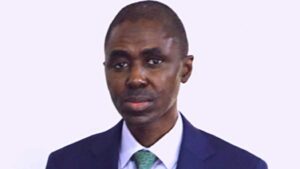


Lack of sustainability eroded of $1.5bn World Bank SFTAS programme — Auditor General
By Matthew Denis
The Auditor General of the Federation, Shaakaa Kanyitor Chira has disclosed that lack of sustenance measures by policies has eroded the implementation of the $1.5 billion World Bank-Assisted States Fiscal Transparency Accountability and Sustainability (SFTAS) programme.
He made the disclosure during the 2023 edition of the Subnational Audit Efficacy (SAE) Index conducted by Paradigm Leadership Support Initiative (PLSI), a non-profit organisation fostering public accountability held in Abuja on Thursday.
The Auditor General who was represented by the Director of Audit, Planning of the Office of Auditor General of Federation (OAGF), Fawale Bisayo Ayinla said, “it is disheartening to note that all improvements in transparency and accountability during the implementation of $1.5billion World Bank assisted States Fiscal Transparency Accountability and Sustainability (SFTAS) programme which immensely encouraged fiscal transparency, accountability and Sustainability at the Subnational level had been eroded due to lack of sustenance measures by the police actors.”
“I’m deeply encouraged and motivated by the commitment demonstrated by the paradigm leadership support initiative in championing the cause of good governance and accountability in the country.”
The Executive Director of PLSI, Olusegun Elemo, said the SAE Index 2023 revealed that 34 States (except Anambra and Benue) have modern audit laws to guarantee the independence of Supreme Audit Institutions and strengthen public audit practices at the state level.
Elemo explained, however, that the improvement witnessed in the policy landscape has not yielded much due to the lack of effective implementation of enacted audit laws in various states which continue to stand in the way of accountability and development.
He said, “The Subnational Audit Efficacy Index, initiated in 2021, serves as an annual scorecard assessing the temperature of public finance management and policy implementation practices at the state level.
“We retained the same methodology deployed for the 2022 assessment and collected, analysed, and validated data provided by Supreme Audit Institutions, Public Accounts Committees, Offices of Accountant-General, Civil Society and Media Organisations in all 36 states of the federation.”
Elemo further noted that PLSI would continue to utilise evidence from its annual assessment to provide tailored support to subnational governments especially in delivering technical assistance to strengthen capacity of relevant state and non-state actors to enhance transparency and accountability practices for improved quality of life for citizens.
He expressed concern over the waning performance of states, noting that results from the latest assessment indicated further decline in performance of policy actors and erosion of reforms needed to sustain and improve on the World Bank-Assisted States Fiscal Transparency, Accountability and Sustainability (SFTAS) Programme for Results implemented between 2018 and 2022 of which $1.5bn was provided to state governments as grants.
“While the average score for the 2022 assessment showed 31.81 percent, the 2023 Index revealed a total average of 30.58 percent indicating a 1.23 percent decline year on year,” he stated.
Elemo elaborated on several cross-cutting recommendations aimed at enhancing public finance management practices at the subnational level in Nigeria including the need for the Executive, Legislature, and the Office of the Auditor-General at the state level to collaborate to remedy inadequacies in the audit legal framework and implement the audit law effectively.
“Findings from the report showed that only 4 out of 36 States have made progress toward implementing financial autonomy and 12 out of 36 States have implemented legal provisions to activate administrative independence for the Office of the Auditor-General.
“Also, the report noted that none of the 36 States produced a standard performance audit report on the government’s programs, projects, or policies in the 2022 financial year.”
The highlight of the event was Ekiti and Yobe states emerging the best-performing states in terms of transparency and accountability in the management and utilisation of public funds and implementation of public policies.
Lagos and Benue states were placed as the least occupying 36 and 35 positions.
The SAE assesses the level of transparency and accountability operational in the management and utilisation of public funds and implementation of public policies across all 36 states of the federation through public audit and key actors in the public audit action cycle.
Ekiti and Yobe states scored 73 percent followed by Akwa Ibom and Katsina states that secured 3rd and 4th positions with 60 percent and 53 percent.
Furthermore, only 3 out of 36 States are sufficiently involving civic and media actors in the audit process of their states and just 5 out of 36 States have effective Public Accounts Committee in their Houses of Assembly.



